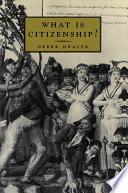
U.S. Citizenship For Dummies
The decision to become a United States citizen is one of the mostimportant choices you can ever make. Before you can become a U.S.citizen, however, you first must be a lawful permanent resident ofthe U.S. For this reason, before you begin the process, you need toknow what you want to achieve - legal immigration ornaturalization - and if you can expect to qualify for it. U.S. Citizenship For Dummies will help you get throughthis often confusing process, from determining how best to qualifyto live permanently in the United States to gaining a green cardand then citizenship. This reference guide is for anyone who * Is interested in living permanently in the U.S. * Is a friend or relative of someone who wishes to livepermanently in the U.S. * Wants to become a naturalized citizen * Has no legal background or any familiarity with U.S.immigration This book helps you discover the important requirements you needto meet and offers tips and insights into dealing with the Bureauof Citizenship and Immigration Services (BCIS). You also get toknow other government agencies that you'll work with whileattempting to immigrate to the U.S. or become a citizen. U.S.Citizenship For Dummies covers the following topics andmore: * Clear information on the immigration process * Up-to-date information on various application forms * The rights of legal aliens * Recent changes in immigration laws * Review of English and Civics tests * Pointers on the interview process * Survey of U.S. history, government, and culture * Coverage on visas and green cards * Troubleshooting immigration problems Becoming a U.S. citizen carries important duties andresponsibilities as well as rights, rewards, and privileges. Beforeyou make the decision to pursue U.S. citizenship, you need to beaware of what you stand to lose and what you stand to gain; youalso need to be sure you're ready to fulfill all theobligations of a good citizen. U.S. Citizenship For Dummieswill help you understand all that it means to become a citizen ofthe United States of America.
- ISBN 13 : 0764554638
- ISBN 10 : 9780764554636
- Judul : U.S. Citizenship For Dummies
- Pengarang : Cheri Sicard, Steven Heller, Steven Heller,
- Kategori : Study Aids
- Penerbit : John Wiley & Sons
- Bahasa : en
- Tahun : 2003
- Halaman : 288
- Google Book : http://books.google.co.id/books?id=YFk2EAAAQBAJ&dq=intitle:Citizenship&hl=&source=gbs_api
-
Ketersediaan :
This reference guide is for anyone who * Is interested in living permanently in the U.S. * Is a friend or relative of someone who wishes to livepermanently in the U.S. * Wants to become a naturalized citizen * Has no legal background or any ...









